- Home
- Sharon Sala
Mimosa Grove Page 23
Mimosa Grove Read online
Page 23
As he was cursing himself, he came up against another wall. Frowning, he realized that this was the second wall he’d come to within a very short distance. Using his fingers as eyes, he felt along the floor, found where the wall and floor met, then followed it further. Again he hit a corner and again he continued to crawl. But when his hand landed on what was obviously his shoe, he rocked backward, staggered by the knowledge that in this very short space of time, he’d made a complete circle.
Now he knew there was nothing around the perimeter of his prison, but he wondered what lay between the walls. Uncertain what he might find but afraid not to try, he backed himself into a comer, took a moment to orient himself to move what felt like forward, then started to crawl.
Within seconds, he’d come to an obstacle. Like the walls, it was concrete, but with some sort of decorations. He traced the base of it with his fingertips, felt different shapes in relief, but couldn’t tell what they were. By the time he’d crawled around the entire base, his breathing was labored and the pain in his head was once more hammering against his scalp. Fearing that he would pass out again, he stopped, lowered his head and waited for the feeling to pass.
When it did, he reached up. Almost immediately, his fingers landed on what felt like cool metal. He gripped it fiercely, using it as leverage to pull himself upright.
Immediately the world started to spin, and he leaned forward, bracing himself against the object to which the metal was fastened. He stood like that for several minutes until his head began to clear and he could steady himself, taking great care to temper the length of his breaths.
He began to run his hands around and over the object against which he’d been leaning. Time passed; then, as he was tracing the shape for what seemed like the hundredth time, it dawned on him what this was.
It was a casket.
He was leaning on a casket.
Knowing that, and knowing he was most likely still in Louisiana, where they did not bury their dead below ground, he deduced that he had to be in a crypt.
He took a frightened step backward, as if being locked in with the dead could somehow hasten his own demise. It took a few moments for his heart to stop pounding and his hands to quit shaking.
Now he knew why the air was running out. Crypts were built to be airtight. The dead certainly didn’t need to breathe. He moved once again toward the walls, ignoring the dizziness in his brain and trying frantically to find the door. There had to be a door. There was always a door. DeLane put him in here. He could get out the same way. All he had to do was find it.
But the seal was tight, and even after he’d found what felt like hinges, there was no handle inside. Frantic, he cursed the men who would design a building, no matter what the intended use, and not leave an exit. It took him a few minutes of anger and grief to realize that in a crypt, there was also no one inside who needed to get out.
At that point his legs gave way and he slid to the floor with a thump. His head rocked back against the wall, reopening the wound and rendering him unconscious once more.
From time to time afterward, he came to just long enough to feel like he was slowly being strangled. The last time he woke up, he began taking off his jacket, then his shirt, in a crazy effort to relieve his body of any and all weight, hoping that it would extend his life for one second more.
As he tossed his jacket aside, he heard something bang against the floor. Frowning, he reached for the jacket but found only air. He rolled over on his side, extending his arms outward as he felt along the floor for the clothing that he’d tossed. Finally he found the jacket, and he ran his hands along the pockets, curious as to what he’d heard. It was then that he realized he was holding his phone.
God in heaven! Why hadn’t he thought of it before? But when his head started to hammer again, he answered his own question. Logic had been impossible through such pain.
He felt along the face of the phone, trying to picture the layout of the buttons, then made himself relax. He laid the phone down by his fingers, slowed his breathing even more, then picked it back up. Without thinking, his finger automatically hit the redial button. He listened to the numbers clicking in, praying that the battery would hold out and he could get a signal.
He caught himself struggling for breath as the phone began to ring. It rang once, then twice, and when it began the third ring, he laid his head on his arm and slowly closed his eyes.
Then he heard his daughter’s voice, and he wanted to cry. He tried to say hello—anything that would constitute an answer. He tried so hard but could manage nothing but a faint gasp. His fingers went limp. The phone was lying in his palm, and through what sounded like a tunnel, he could hear Laurel screaming his name.
He needed to tell her that he loved her, and that all these years he’d been so wrong about her mother and her, but it was going to be too late.
***
Laurel was still clutching the phone, listening to nothing but silence, and then what sounded like a sigh. Almost instantly, her stomach knotted.
“Daddy! Is that you?”
Justin spun and ran out of the room, heading for an extension in the library as Marie moved toward Laurel.
Laurel’s knuckles were turning white from her grip on the phone. She was pressing the receiver so hard against her ear that it was actually painful, and still she could hear nothing but the faint sounds of labored breathing.
“Daddy! Daddy! Whatever you do, don’t hang up,” she begged. “If you can’t speak, it’s okay. Just don’t hang up.”
She closed her eyes, using the tenuous connection as the only link she was likely to get.
Almost instantly, she flashed on panic, then blood. Blood running down his face and onto the front of his shirt. She saw hands pushing her father into a car. She saw the back of the car as it was driving away.
“Louisiana rental LA 4122,” she muttered.
Justin was on the other line, and the moment the words came out of her mouth, he picked up a pen and began to write down everything she said.
Trees and sky passed by in a blur of blue and green, and Laurel knew that her father was not where he’d been when he called.
“Daddy… can you hear me? Put the phone to your ear. Say something, Daddy. Anything… just keep breathing.”
Robert heard her, but the effort it took to move was almost more than he had in him. Still, unwilling to break the only connection he had left and knowing her voice would be the last thing he would hear on this earth, he wrapped his fingers around the phone and held on with what life he had in him.
Laurel swayed. Marie caught her where she stood, then dragged a kitchen chair beneath her legs and pushed. Laurel sat down with a thump. Almost instantly, she saw a cemetery and all sizes and shapes of crypts. Some concrete, even one or two that appeared to be of some sort of granite.
“Cemetery… trees… off the highway. Moving, still moving. I see an angel standing between two crypts. His arms are reaching toward me. Daddy… Daddy. Talk to me, damn it! You can’t die! Don’t you dare!”
Robert jerked. The shout pulled him up from the depths into which he’d been sinking. Before he knew it, he’d rolled over onto his side, and when he did, he felt a tiny bit of difference in the temperature on his face. It took a few moments for the reason to sink in, and when it did, he wasn’t sure that he had enough energy left to make it worth his while. He could still hear his daughter’s voice, and he followed it, using his fingers as a guide, until he realized he was touching one of the corners in the wall.
He dug into it with his fingernails, and as he did, he felt a faint stirring of heat against his skin. Heat meant air, and air meant life. He dug harder, and he felt a tiny bit of concrete crumble. He thrust his fingers into the crack. Concrete came away in small chunks. Whatever time and weather had done to the body inside his casket, it had done to the crypt as well.
In a short time there was a large-enough crack in that comer that Robert could put his thumb through. With his last ounces of
strength, he pulled himself forward, laid his cheek against the floor as close to the crack as he could get and inhaled.
It was dusty and rank and smelled hotter than the insides of hell, but it was air, and better than what was left inside some stranger’s final resting place. He took another breath, then another and another, until enough oxygen had filtered through his brain that he trusted himself to speak.
The phone was still in his other hand. He lifted it to his ear, making himself focus when it would have been far easier just to sleep, and heard his daughter screaming his name.
“Laurel.”
Her name on his lips was like music from the angels. She pressed her fingers against her mouth to keep from crying and then made herself focus.
“Daddy. I see things… but nothing specific that will help us find you. Do you know where you are?”
“In a crypt.”
“Oh, God… oh, God,” she muttered, then made herself calm down. “Do you know where it is? Are you close to a town or a city? Did you see a name on any road signs?”
“I told you everything I know,” he mumbled, then tried to laugh. It sounded more like a sob, but she wouldn’t let herself think of what that would mean. “I don’t know where I am.” Then he added as an afterthought, “There’s a casket in here.”
Laurel closed her eyes. “Touch something, Daddy. Touch the walls. Touch the casket. I need something to lock onto.”
He tried another laugh. “This is crazy.”
“Humor me,” she begged. “Where are you?”
“Lying on the floor. Running out of air.”
Fear shattered her concentration. It was a sharp shake from Marie that made her focus again.
“Touch the walls, Daddy. Do it for me.”
He sighed, then opened his hand. The wall was damp and slightly cool, reminding him of how desperately he wanted a drink of water, but he did as he’d been told.
Almost immediately, Laurel saw twin crypts and again the angel with hands reaching toward her. Then the vision suddenly narrowed, and she saw the door of a crypt, then a name carved in stone above it.
“George Henry Gooden—1904–1980.”
***
Justin scribbled the name, yanked his cell phone out of his pocket and called Harper Fonteneau.
“Harper! Don’t ask me why, but can you find the final resting place for a man named George Henry Gooden? Born 1904. Died 1980.”
“Yes.”
“Then do it! As fast as you can. It’s worth a man’s life. Call me back at this number.” He rattled off his cell phone number, then disconnected.
***
Laurel was still talking to her father, but his side of the conversation was starting to break up as the battery in his phone started to go dead.
He could hear a faint beep against his ear and knew what it meant. His tenuous connection with her was almost over.
“It’s not your fault,” he said hoarsely.
“Daddy… don’t die. Please don’t die. I’m sorry for all the fights we’ve had. I’m sorry for everything that made you unhappy. Just please don’t die.”
His answer faded with the weakening battery, leaving her with only half the truth.
“…love… not your… sorry, too. You’re… danger. Tell Clausing… Trigger…”
The line went dead. Her connection with her father was gone.
The phone slid out of her grasp, dangling from the cord against the wall as she buried her face in her hands.
Marie laid a hand on the back of Laurel’s head.
“I’m sorry, baby girl.”
Laurel turned around and buried her face against the old woman’s breasts. Marie hung up the phone, then wrapped her arms around Laurel and held her close.
Justin came running into the kitchen.
“We’re not out of this yet,” he said, and laid his cell phone on the table, then put his arms around them both. “Don’t give up, honey. Not yet.”
As always after a vision, Laurel felt herself weakening. She needed to sleep but was afraid that if she did, she would wake up to find herself having to plan a funeral.
“Help me,” she begged, and with their help, she managed to stand.
She staggered to the kitchen door, then opened it and walked out onto the back porch. Almost immediately, she saw the occasional flash of light moving through the grove.
“What’s that?” she said, pointing toward the trees.
Marie put a hand on her back.
“That’s the men huntin’ for the painter.”
“In the dark?” Laurel asked.
“That’s when the big cats hunt. The men… they playin’ on the painter’s turf, so they have to do as he does.”
Laurel shuddered. “I never knew life could be so… so… visceral. It wasn’t like this in D.C.”
Marie sighed, gave Justin a worried look and went back into the house.
Justin hated the sound in Laurel’s voice and feared that she was pulling away from him and the land that he loved. He put his arms around her, then held her close, resting his chin at the crown of her head and feeling the weight of her breasts against his wrists.
“Are you sorry?” he whispered.
“For what?”
“For coming to Mimosa Grove?”
“No.”
“You need to know that I would die to keep you happy.”
Laurel turned in his arms and then realized true night had come when she couldn’t see the features of his face. She reached up, taking comfort in the shape of him beneath her palms.
“And you need to know that your death would break my heart, so don’t waste the gesture.”
“Something your father said…”
“What?”
“Something about you being in danger.”
Laurel frowned. In the heat of the moment, she’d let that go over her head, but now that he’d reminded her, she remembered.
“Yes, he did, didn’t he?”
“From the man who kidnapped him?”
“I guess so.”
“He said something about a trigger. Do you think he was talking about a gun?”
And in that moment, she knew.
Before, her father had said to tell them it was DeLane. And all the while she’d thought he was talking about the general who sat on the President’s cabinet. But it wasn’t him. It was his son, Trigger. She vaguely remembered seeing the blond playboy at various parties over the years but hadn’t given him a thought. Now she realized she’d better think twice.
“It wasn’t a gun. It was a man. His name is Trigger DeLane, and somehow he’s connected to McNamara, the man my father’s prosecuting for treason.”
“Then you could be in danger,” Justin said.
“Maybe,” Laurel said. “I don’t know why.”
“I do,” Justin said. “Think about it. If he knows you, then he knows what you can do. Your father was talking to you when your call was cut short, right?”
She nodded.
“Then it stands to reason that the man who took your father might believe you know his identity, if for no other reason than your second sight. Obviously, wherever he left your father, he intended for him to die. So it follows he’ll want to get rid of anyone else who could still identify him.”
Laurel turned, then stared out into the darkness.
“Come inside,” Justin urged.
She followed without hesitation.
17
Within seconds after Justin reentered the house, a phone began to ring, but it wasn’t the residence phone. He hurried toward the table where he’d left his cell.
“Harper?”
“Yeah, it’s me,” Harper said. “I got your information. The man is buried in a small cemetery near St. Lorraine.”
Justin groaned. “That’s nearly an hour’s drive from here. We don’t have that kind of time.”
“Yeah, I gathered that from what you were saying,” Harper said. “I’ve got the parish police from St. Lorraine on
hold on the other line. What do you want me to tell them?”
“Just a second,” Justin said, and ran from the kitchen to the library, where he’d written down the information. “Here it is,” he said. “Tell them someone kidnapped Laurel’s father, Robert Scanlon. It’s too complicated to explain right now, but we think he’s in their local cemetery and locked inside one of the smaller mausoleums. Laurel said to look for two identical crypts standing side by side with an angel between them. The angel’s arms are reaching forward. Scanlon will be in the one that has George Henry Gooden’s name above the door.”
“Holy Moses,” Harper muttered. “What’s going on out there?”
“Just tell them to hurry and, Harper, call us the moment you hear anything more.”
“You got it,” Harper said.
Justin disconnected, then realized Laurel was standing beside him. She’d learned to mask her feelings so well over the years that he couldn’t tell what she was thinking. Then she spoke, and he heard the tremble in her voice.
“Justin… please tell me something good.”
“Gooden was buried in a small cemetery outside St. Lorraine, which is about an hour’s drive from here. Harper had the local authorities on the other phone waiting for instructions. They can be there within a matter of minutes. I gave them the directions. If he’s there, they’ll find him.”
“Oh, Lord,” she muttered, and covered her face with her hands.
“It’s going to be all right,” Justin said, and took her in his arms. But as he held her, he wasn’t so sure that he hadn’t told her a lie. After everything that had happened, he didn’t see how anything could ever be all right again.
And then, once again, the phone began to ring, but this time it was the phone at Mimosa Grove.
Laurel turned away from the sound and put her hands over her ears.
Justin reached for the receiver and picked it up.
“Mimosa Grove.”
“This is Attorney General Andrew Clausing. I need to speak to Laurel Scanlon.”
“One moment, please,” he said, and handed Laurel the phone. “It’s Clausing.”

 Blind Faith
Blind Faith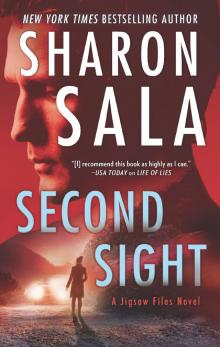 Second Sight
Second Sight Count Your Blessings
Count Your Blessings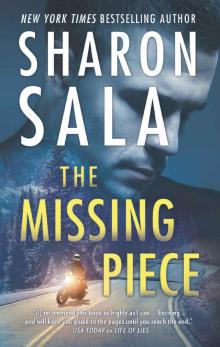 The Missing Piece (The Jigsaw Files)
The Missing Piece (The Jigsaw Files) Bloodlines
Bloodlines Sudden Danger
Sudden Danger King's Ransom
King's Ransom Once in a Blue Moon
Once in a Blue Moon A Rainbow Above Us
A Rainbow Above Us Always a Lady
Always a Lady Touchstone
Touchstone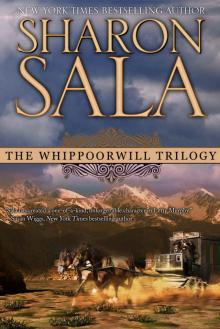 The Whippoorwill Trilogy
The Whippoorwill Trilogy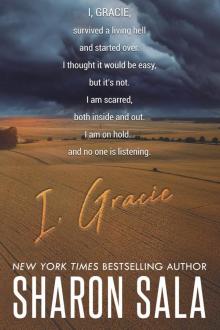 I, Gracie
I, Gracie Honor's Promise
Honor's Promise Rider on Fire
Rider on Fire The Gathering
The Gathering Don't Cry for Me
Don't Cry for Me The Way Back to You
The Way Back to You Swept Aside
Swept Aside Blood Stains
Blood Stains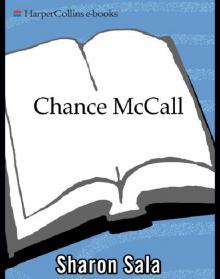 Chance McCall
Chance McCall Out of the Dark
Out of the Dark For Her Eyes Only
For Her Eyes Only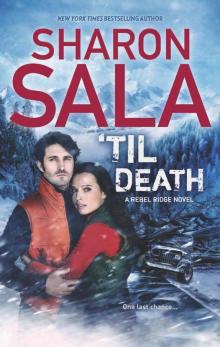 'Til Death (A Rebel Ridge Novel)
'Til Death (A Rebel Ridge Novel) Roman's Heart
Roman's Heart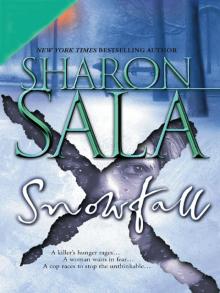 Snowfall
Snowfall Dark Hearts
Dark Hearts Mission: Irresistible
Mission: Irresistible A Place to Call Home
A Place to Call Home Betrayed
Betrayed The Lunatic Detective
The Lunatic Detective The Dove
The Dove Windwalker
Windwalker The Miracle Man
The Miracle Man The Curl Up and Dye
The Curl Up and Dye Familiar Stranger
Familiar Stranger Sweet Baby
Sweet Baby The Boarding House
The Boarding House Bad Penny
Bad Penny Remember Me
Remember Me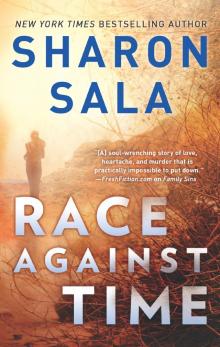 Race Against Time
Race Against Time The Dove (Prophecy Series)
The Dove (Prophecy Series)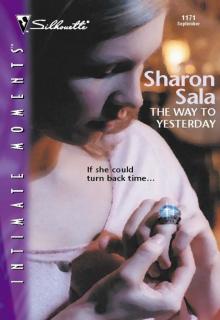 The Way to Yesterday
The Way to Yesterday The Healer
The Healer The Color of Love
The Color of Love Missing
Missing Next of Kin
Next of Kin A Field of Poppies
A Field of Poppies Cold Hearts
Cold Hearts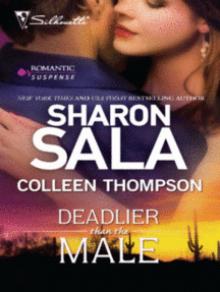 Deadlier than the Male
Deadlier than the Male Color Me Bad: A Novella
Color Me Bad: A Novella Lunatic Times Two: 4 (The Lunatic Life Series)
Lunatic Times Two: 4 (The Lunatic Life Series)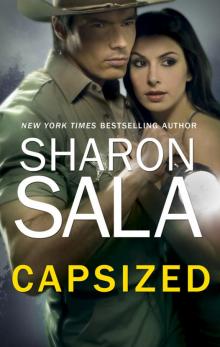 Capsized
Capsized Sympathy Pains
Sympathy Pains ROYAL'S CHILD
ROYAL'S CHILD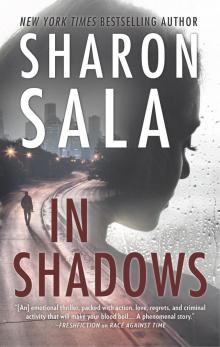 In Shadows
In Shadows 3, 2, 1...Married!
3, 2, 1...Married! Family Sins
Family Sins The Chosen
The Chosen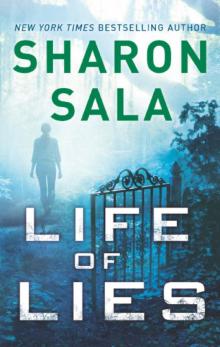 Life of Lies
Life of Lies Lunatic Revenge
Lunatic Revenge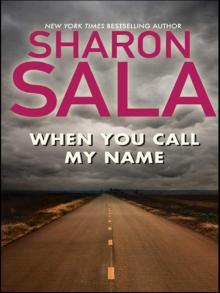 When You Call My Name
When You Call My Name I'll Stand By You
I'll Stand By You Saving Jake
Saving Jake Going Gone
Going Gone ANNIE AND THE OUTLAW
ANNIE AND THE OUTLAW Butterfly
Butterfly Cut Throat
Cut Throat Ryder's Wife
Ryder's Wife The Hen House
The Hen House Amber by Night
Amber by Night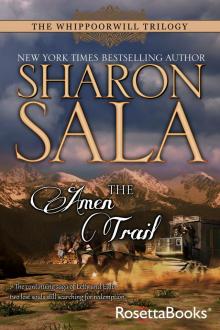 The Amen Trail
The Amen Trail Mimosa Grove
Mimosa Grove Dark Water
Dark Water Wild Hearts
Wild Hearts Blood Trails
Blood Trails The Warrior
The Warrior Shades of a Desperado
Shades of a Desperado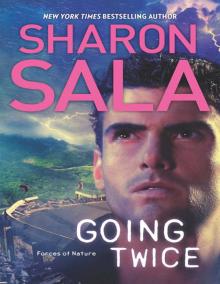 Going Twice
Going Twice A Piece of My Heart
A Piece of My Heart You and Only You
You and Only You Nine Lives
Nine Lives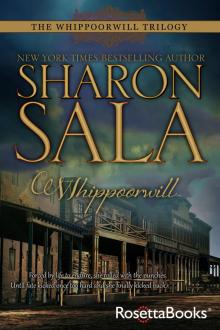 Whippoorwill
Whippoorwill